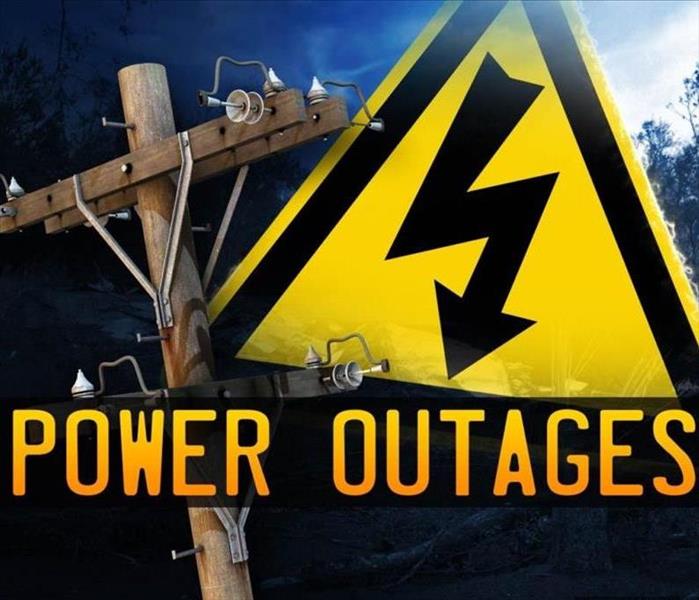Safely preparing for power outages during a storm.
12/4/2019 (Permalink)
Power outages in the Pacific Northwest are often due to downed power lines and heavy wind storms, during the winter months. SERVPRO would like to help you make a plan and be safe.
Power outages can cause a number of safety concerns; knowing the following information can help:
Ways to prepare before a power outage
- Register life-sustaining and medical equipment with your utility company.
- Consider buying a generator. When installing a generator, follow the instructions carefully.
- Make sure your disaster preparedness kit contains light sticks, flashlights, a battery-powered radio with extra batteries and a wind-up clock.
- Have a corded telephone available — cordless phones will not work when the power is out.
- Have a safe alternative heat source and supply of fuel. Never burn charcoal or use a generator indoors.
- If you own an electric garage door opener, know how to open the door without power.
During a power outage
- Turn off lights and electrical appliances except for the refrigerator and freezer.
- Even if it is dark, turn light switches and buttons on lamps or appliances to the “off” position.
- Unplug computers and other sensitive equipment to protect them from possible surges when the power is restored.
- Leave one lamp on so you will know when power is restored. Wait at least 15 minutes after power is restored before turning on other appliances.
- Conserve water, especially if you use well water.
- Never use gas ovens, gas ranges, or portable or propane heaters for indoor heating—they use oxygen and create carbon monoxide that can cause suffocation.
- Candles can cause a fire. It's far better to use battery-operated flashlights or glow sticks for lighting.
- Using a kerosene heater, gas lantern or stove inside the house can be dangerous. Maintain proper ventilation at all times to avoid a build up of toxic fumes.
- Stay away from downed power lines and sagging trees with broken limbs
Keeping food safe
- Use and store food carefully to prevent foodborne illness when power outages make refrigeration unavailable.
- Use foods first that can spoil most rapidly.
- Keep doors to refrigerators and freezers closed. Your refrigerator's freezer will keep food frozen for up to a day. A separate fully-loaded freezer will keep food frozen for two days.
- Use an ice chest packed with ice or snow to keep food cold. Use blocks or bags of ice to save refrigerator foods.
- If in doubt, throw it out. Throw out meat, seafood, dairy products and cooked food that does not feel cold.
- Never taste suspect food. Even if food looks and smells fine, illness-causing bacteria may be present.
Generator use during a power outage
Don't overload your generator, determine the amount of power you will need to operate those things you plan to connect.
- Light bulb wattage indicates the power needed for lighting.
- Appliances and equipment labels indicate their power requirements.
SERVPRO of Longview/Kelso would also like to share a friendly reminder, to check on the elderly in your neighborhood ensuring their safety. The power outages we have experienced over the past years in Washington are normally restored fairly quickly. However, in the event of a longer outage, it's important to know how to be prepared.
If you have ineluctably experienced storm damage to your home, we are here for you 24/7.





 24/7 Emergency Service
24/7 Emergency Service
